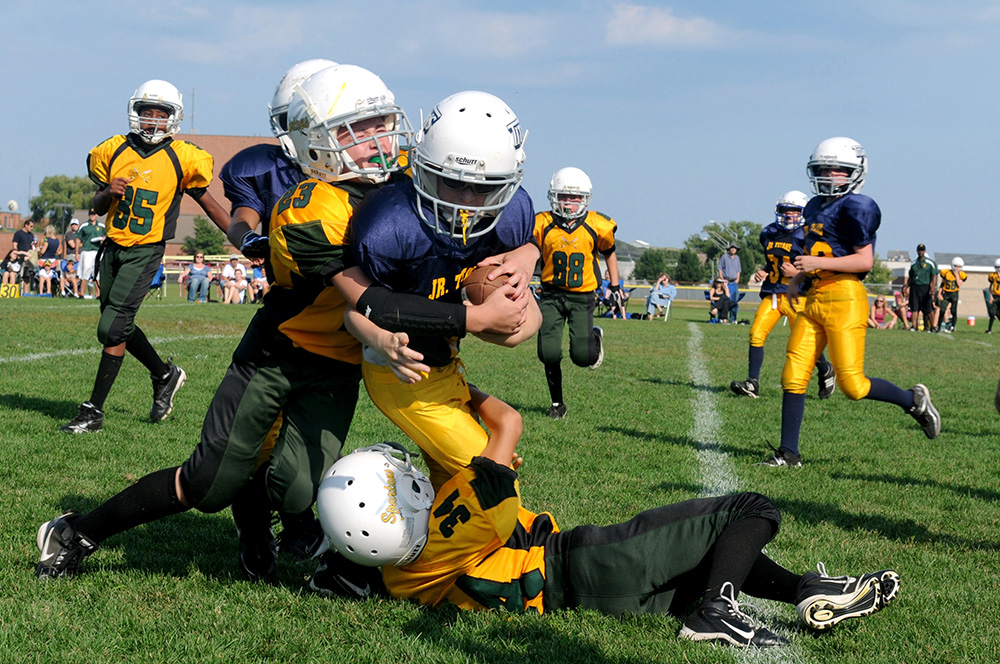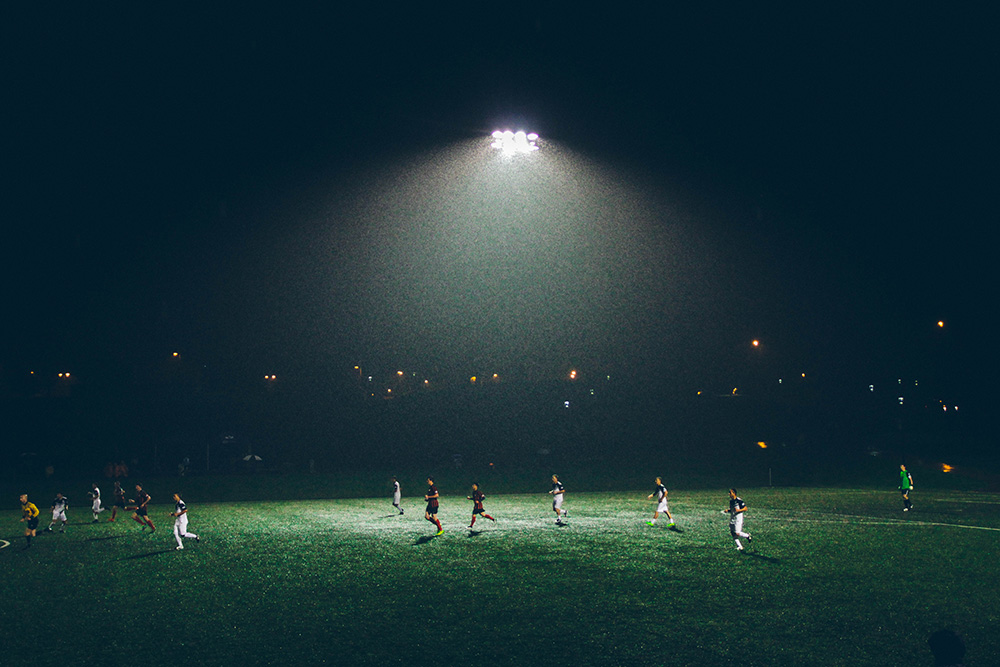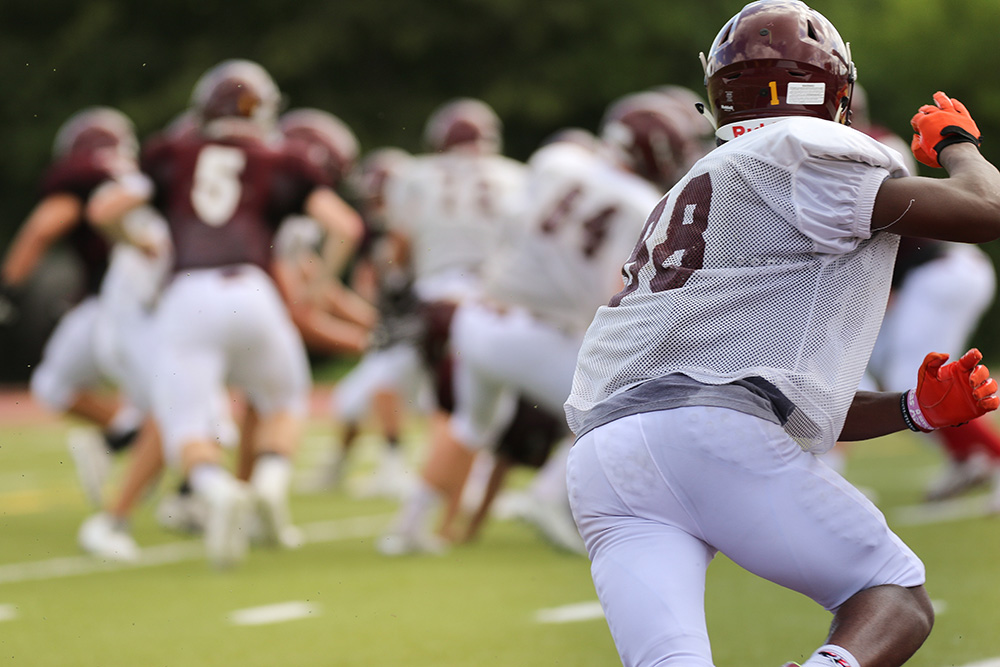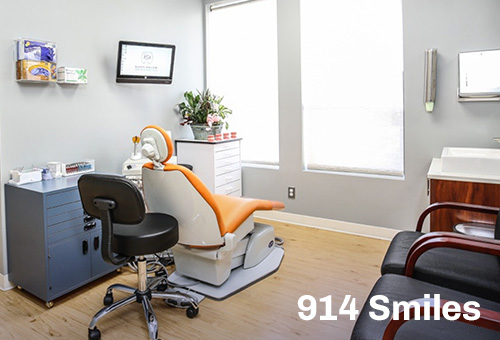
Dr. Kothari is a huge soccer fan and when the weather’s nice and he isn’t busy perfecting smiles as a Sleepy Hollow, NY orthodontist, you can usually find him kicking around a ball outside. In our River Towns, he’s hardly alone in his passion for sports, which is why he’s often asked questions like, “Can you play soccer with braces?” and the answer is, of course! Dr. Kothari is all about encouraging his patients to play their hearts out.
However, if your child or teen is an athlete, it’s important that they protect their smile since dental injuries are extremely common. While everyone, adults and children alike, should wear a mouthguard in any activity that carries a risk of getting hit in the mouth, when it comes to sports and braces, it’s even more crucial.
What You Should Know about Sports and Braces
About 30 million kids and teenagers play sports each year in the United States and as we mentioned, dental injuries happen frequently. In fact, more than five million teeth are knocked out annually in the U.S. Ouch. A large percentage of these injuries occur during sports and physical activity.
While the National Federation of State High School Associations requires scholastic athletes to wear mouthguards during football, ice hockey, lacrosse, field hockey and wrestling (if the wrestler has braces), basketball and baseball actually carry a really high risk of dental trauma and facial injury too.
Since they’re not technically contact sports, mouthguards aren’t usually mandatory. It’s recommended that people of all ages wear mouthguards even if it’s not in the rulebook when playing any sport or activity where a collision or blunt trauma to the face is a possibility. Activities like tennis, skateboarding, basketball, martial arts, gymnastics, skiing, volleyball, riding a bike, baseball, softball and more fall into this category.
The most common facial and dental injuries in sports include cuts to the lips, cheeks and tongue and loose, fractured, displaced and knocked out teeth, as well as dislocation of the temporomandibular joint (TMJ) and jaw fractures. These injuries aren’t usually life threatening but they can be expensive and inconvenient to fix and, obviously, very painful. Now, throw an orthodontic appliance into the mix and you have another layer.
Because of the brackets and wires, getting hit in the face while wearing braces can cause even more damage to the soft tissues of the mouth (i.e., cheeks, tongue and lips) or result in an opposing player getting cut if the blow is from their elbow or hand. Plus, blunt trauma often leads to broken brackets.
The best way to prevent this and make sure sports and braces happily coexist is to have your child or teenager wear a mouthguard. Even though braces require some special consideration, Invisalign patients shouldn’t forgo the safety precaution either. Orthodontic treatment is an investment, so keep your child’s smile safe.
Are There Sports Mouthguards for Braces?
Mouthguards cushion blows to the mouth and protect the lips, cheeks, tongue and teeth. Additionally, by dissipating the forces, they may also help reduce the chances of sustaining a jaw fracture or injury to the TMJ. There hasn’t been enough compelling evidence to suggest mouthguards can offer protection against concussions, so make sure your child still wears a helmet or other safety equipment during activities that call for it.
Kids straightening their teeth with braces will need an orthodontic mouthguard for braces. This type is more flexible and big enough to accommodate the braces brackets and wires. It serves as a barrier between the hardware and the soft tissues and also keeps the appliance safe. Kids and teens shouldn’t just try to mold a mouthguard for braces using a standard model because it won’t fit properly and they won’t get adequate protection.
Book a free consultation to discuss mouthguards today!
You can purchase a standard orthodontic mouthguard at a sporting goods store or at our office. These over-the-counter ones are the least expensive option. Yet, it isn’t going to be as effective as a custom orthodontic mouthguard created by an orthodontist. The custom variety is made based on a model of the patient’s mouth for the perfect fit and an excellent fit is key to a mouthguard working properly.
Since kids and teens are still growing and those wearing braces will experience tooth movement, going custom can get you more mileage out of the mouthguard as we can account for the changes and save a little space. We offer custom mouthguards in Sleepy Hollow at our office, so feel free to contact us to learn more or schedule a free consultation.
Taking Care of an Orthodontic Mouthguard
Caring for an orthodontic mouthguard is simple. Because the mouth is full of bacteria and the mouthguard is covered in spit, it can get pretty gross quickly. Have your kiddo rinse the mouthguard or brush it with a toothbrush and a bit of toothpaste before and after using it.
Every so often, they’ll want to give their mouthguard a deeper clean with mild dish soap and then rinse it really well with lukewarm water. Store the mouthguard in a hard case that has vents in it and don’t leave it in the sun or clean it with hot water. Replace it when it shows signs of wear or gets distorted. If it doesn’t fit properly, it can’t do its job.
Handling Sports Injuries While Wearing Braces
If your child experiences a dental injury while playing sports, get them treatment as quickly as possible. When a tooth is knocked out, fractured, loose or displaced, the faster you see a dentist, the greater the chance it can be saved. For bleeding that won’t stop or if you suspect your child has a jaw fracture, go to the nearest emergency room.
Once you’ve dealt with the injury, call your orthodontist so they can repair damaged braces. If the collision or impact happened when they were wearing a standard mouthguard, throw it away and get a new one. If a custom mouthguard was involved, bring it to the doctor so they can inspect it.
Preventing or reducing the severity of dental injuries is as easy as popping in a mouthguard. If your child is wearing braces and dreams of joining Coach Veintimilla’s Horsemen’s squad, vying for a spot on the unstoppable Irvington girls’ basketball team or is planning to play any sport for that matter, don’t forget to ask us about a custom mouthguard made for braces.





